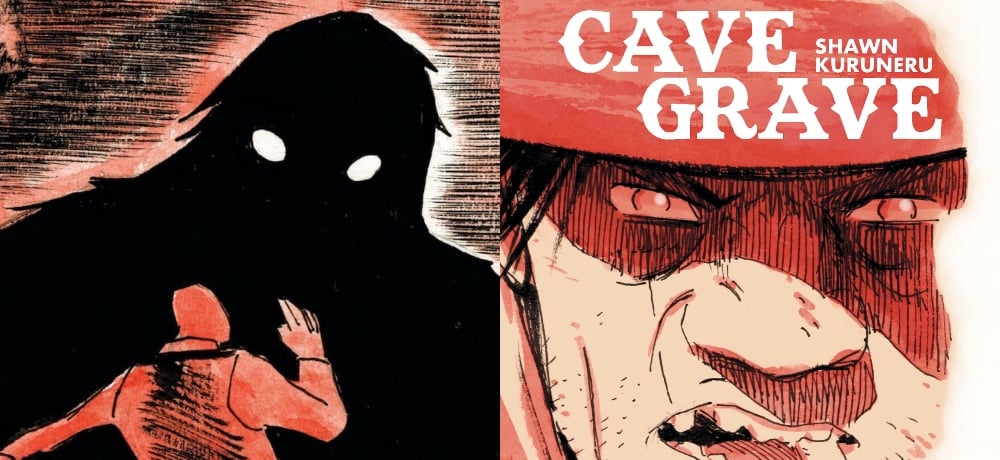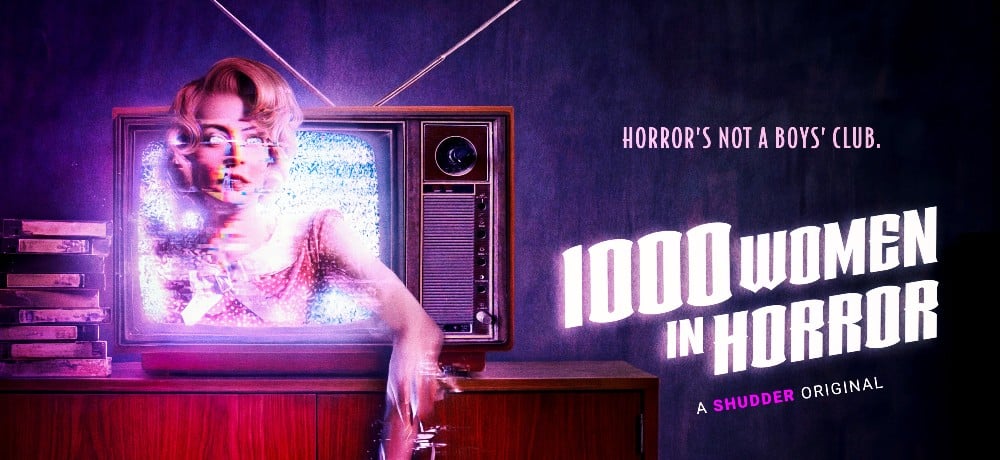






Do you enjoy your date night movies with a side of thrills and drenched in fun-loving ambitions? That's Christopher Landon's romantic thriller Drop, about a dangerously awry first meetup. Meghann Fahy and Brandon Sklenar star in the impromptu assassination plot over dinner, which feels 90s coded in its entertaining abandon. Writers Jillian Jacobs and Chris Roach channel Wes Craven's Red Eye, Eugenio Mira's Grand Piano, and Joel Schumacher's Phone Booth. I had the pleasure of attending Drop's world premiere at this year's SXSW film festival, where it put a big ol' movie-loving smile on my face (here's the review to prove it).
A few short weeks later, I found myself in New Orleans at the Overlook Film Festival, eating po' boys and devouring horror movies. Drop brought the house down based on post-screening buzz—I didn't snag a ticket out of respect to other badge holders trying to secure a seat. But, I did have the opportunity to interview Mr. Landon bright and early the next day by New Orleans standards (11AM is early when you're going to bed at 5AM). When's a better time to chat about one of the year's wackiest skyline mysteries?
"[Drop] was always set in Chicago," Landon confirms. Illinois' most populated city plays home to Palate, the elegant 38th-floor restaurant where an anonymous meme sender harasses Fahy's Violet. But movies often fake city locations, and Drop is no different. "We [shot] in Dublin, Ireland, which makes zero sense because there are no high-rises in Dublin, Ireland," Landon chuckles. "We did a plate shoot in Chicago—so there is real Chicago in the movie—but it's just not our restaurant."
Speaking of Palate, the wood-accented, contemporary chic establishment—described by Landon as a “gilded cage”—was a fully operational restaurant built only for filming, from scratch. According to Landon's interview with Meagan Navarro at Bloody Disgusting, Palate was a custom 12,000-square-foot restaurant with a fully operational kitchen. "The entire restaurant is real … we had a real chef who designed a real menu." In Landon's words, there wasn't a rational scenario where they could borrow a real-world restaurant for the time required during production. "We could not have made this movie in a real restaurant; I needed total control of the environment to pull it off." That control includes the dishes served to surrounding tables. "We had to have model food created based on our menu so there [were meals] on all the tables and actual eating happening, and so forth—it was elaborate."
What was Landon's favorite entrée, then? "Oh, the steak." A man of taste, and not the only one on set. Sklenar kept chowing down, take after take, in the ballpark of five steaks in one day. Landon humorously recalls, "I had told him to stop because we started to hear his stomach on the mic."
Rest in pieces, Palate. The single-location restaurant was torn down following the shoot. "I was so sad when they destroyed it." The production team wasn’t, though. "They destroyed it the day we were done. Chopped into bits and thrown on the pyre. I remember asking [someone], 'Does this make you so sad?' She goes, 'No, I fucking love it.'" Catharsis can be a strange rush.
But Palate more than served its purpose. Drop is a supremely audacious brand of interpersonal thriller that's high-concept yet effectively streamlined. I mused how today's moviegoers echo complaints about today's releases being too predictable to Landon: "And they're right." He continues, "I'm constantly approaching [filmmaking] as an audience member first, and then creative second. I love a weird batshit crazy moment because it's hard to surprise people." That's Drop alright, from its incorporation of hockey equipment to remote control cars. Landon's all about going big or going home. "You can't make a fucking movie in a high-rise and not throw someone out a window. What are you doing with your life?"
That batshit extends to the film's tone, which is quite often white-knuckled yet darkly humorous. Landon's trademark injection of comedy in horror scenarios like Freaky or Happy Death Day, and Drop is his greatest weapon. "I'm not a serious enough person ... humor is a great way to endear the audience to your characters. To distract, disarm, or subvert them." Enter Jeffery Self as Violet and Henry's waiter and consistent source of comedic relief, Matt. "Jeffrey's a really funny fucking guy, so many of Matt's best moments in the movie are improv. I have such a long runner of different things that Jeffrey says coming out from under a table [at one point]. I almost wanted to have that as an extra that they can release."
As a horror-comedy fan, I appreciate having a character like Matt slice through tension with a precision laugh. But not everyone enjoys blending horror and comedy. There are stubborn purists who don't consider anything funny to be classifiably horror, and studios balk at the term horror-comedy. "When we made Heart Eyes, I remember the first trailer they cut. They said, very directly, 'We are not selling this as a comedy.' I remember pushing back and saying, 'Nobody knows this is a rom-com from all the materials you're releasing.' And they were like, 'Yeah.'" Justice for horror-comedies, y'all. Don't fear the laughter.
Speaking of humor, I had to ask about the meme curation. Every "drop" Violet receives is a tweak on a recognizable internet meme, which Landon confirms went through scrutinous vetting. "[Writers Jillian Jacobs and Chris Roach] had most of those in the script … you visually saw them." There's a screenlife element about using images we recognize, not fake, off-brand memes like sitcom filler. "It's time-consuming and can be expensive to clear those [rights] and use real [memes], but I had said from the beginning, we have to get [the originals] because if they're not real memes that we've all used and received and shared, then it's stupid." They tracked down permission for every stinkin' meme, so visual authenticity stayed believable. "It was a big to-do that took months and had to be done in advance because we wanted those [memes] to be on the phone [during shooting] so that the actors could react to them as well."
Shockingly, only one brand declined participation in Drop. Landon jokes, "Somehow Apple wasn't thrilled with the idea of us using [their program] as a weapon."
You can't praise Drop without lauding its fantastic leads. Fahy and Sklenar's chemistry is off the charts as anxious daters caught in a backdoor assassination plot, but the organic nature of their date stays paramount. Meghann Fahy was "top of mind" because Landon was "taken by her in The White Lotus." Brandon Sklenar's casting came after because Henry has a complex role in Violet's situation. "Henry's the damsel in distress, and I love that there's a wish for fulfillment aspect. If I'm Violet, on a date, and if [Sklenar's Henry] walks into the restaurant, I really want to be on that date because he's a smoke show. Very, very handsome, but also likable and charming." Loveliness must blossom between Violet and Henry in this three-headed Cerberus of horror, comedy, and romance, which it does thanks to Fahy and Sklenar's fragile back-and-forths.
Landon isn't afraid to embrace countless subgenres at once. Drop is a romantic horror-comedy that represents all parts. Why? Because that's our human condition. "I always tell people, if you look at your life on any given day, you move through multiple genres. Your day can be a comedy one minute, a horror movie the next, and then a drama. [Life throws many things at us], and they're never in the same lane. So, for me, it's not that disparate. It's not that weird to combine these things because we're living it all the time."
Yet, as a current dater, Drop also faces a unique challenge. Why does Henry stay on Violet's date? A first date nonetheless—when do you pull the ripcord? "It's funny, in the earlier drafts, he never tried to leave," Landon recalls. "At one point I was working with the writers, and I was like, '[Henry] has to try to leave.' No rational person is staying on this date anymore." Thankfully, this question turns into a rather memorable exchange between Violet and Henry bred from the drastic lengths Violet must pursue to ensure Henry does not exit Palate. "I always find in writing, something that is a problem, you should try to figure out how it can become a strength. A part of the story that works for you, not against you. Make [Henry] leave and then figure out what she has to do to keep him there." The answer is, well, a whole lot.
Landon's role as director is uncommon in Drop because he's not a credited screenwriter, but he still influenced the story. "I came onto the project when [Jillian Jacobs and Chris Roach] had just finished their first draft, so I got to put on my writer hat and we worked very closely for quite a while developing the script." He stressed how "amazing" Jacbos and Roach are and how in sync they stayed throughout the process, emphasizing how not only "rewarding" it is to be in a mentorship role, but to learn from others. "I'm a permanent student; it's just more enriching."
So what's next for Drop? C'mon, Hollywood will sequelize anything these days. "There's always an idea lingering in the back of my head for a sequel—I certainly have an idea for Drop—but cart before the horse." I'm all for a standalone, but I also recognize a good time when I see one. Fingers crossed that Drop crushes at the box office and we get another exhilarating, off-the-wall date night watch from Christopher Landon.